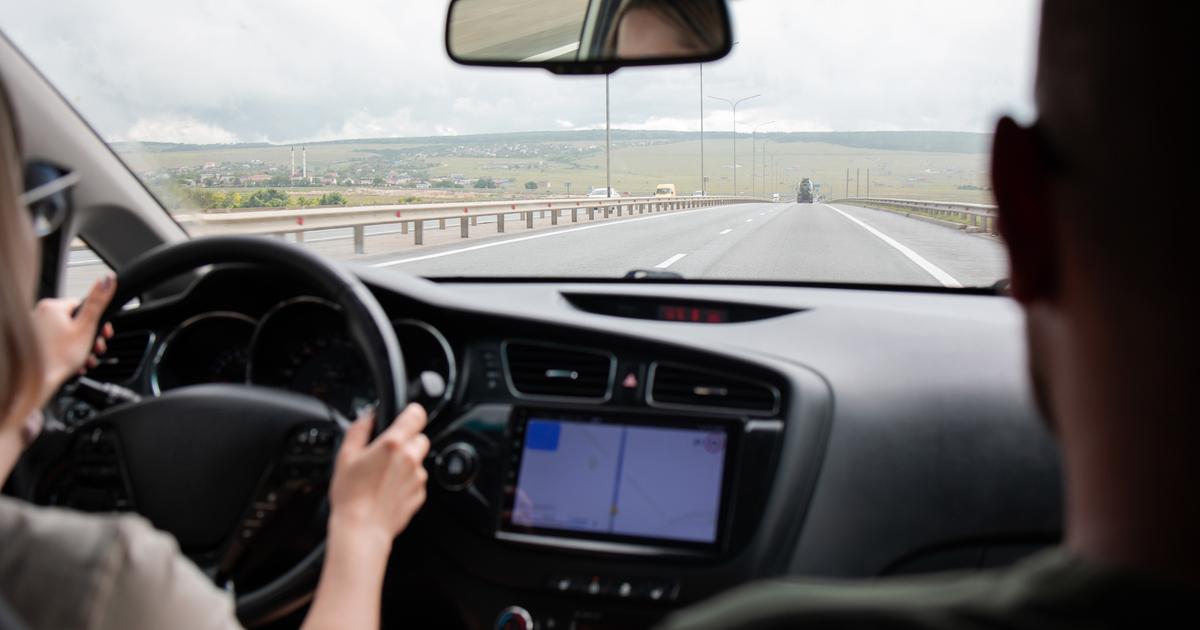France, strictly confined until May 11 to fight against the Covid-19, begins to prepare for the aftermath. Elsewhere in Europe, all countries are not at the same level of containment, and deconfinement strategies also differ. While some are starting to reopen schools, others do not plan to do so until September.
Overview of the progress of deconfinement in Europe, passing by our German, Italian, Spanish and Danish neighbors.
Small businesses reopen on Monday in Germany
The Germans are thinking about vacations again. “But this summer, we will not be going to France. It will be the Bavarian countryside ”, explains the fashion designer Anna, lying on a lawn of the Volkspark Friedrichshain, one of the many parks in Berlin, the capital.
Of course, she is worried about her job, threatened by the crisis. But she did not have the impression of having experienced a situation comparable to that of Italy, Spain or France. In Germany, there has never been a strict confinement, only a social distance of 1.5 to 2 meters, depending on the region. No travel certificate, no limited exit area, jogging allowed at all times ... Even bookstores, DIY stores, florists and wine merchants remained open in Berlin. Finally, the police are rather benevolent. "Don't be afraid to get some fresh air. We only control groups of more than two people, "said Berlin police on Twitter.
The Germans were not traumatized by their five weeks of "confinement". Polls confirm that two-thirds do not feel bothered by the restrictions. And with five times less deaths than in France, despite some 16 million more inhabitants, Germany has been relatively spared from the pandemic. On the strength of such a record, the Chancellor has returned to first place among the most popular political figures in the country. Serene and pragmatic, Angela Merkel has developed a communication strategy which has restored confidence to the Germans. And released 1000 billion euros to help its companies.
The spread of the virus being "under control", according to her Minister of Health, Angela Merkel therefore decided on April 15 to start her exit strategy by announcing the gradual reopening of schools and high schools from May 4, especially for graduates and pupils having to pass exams.
Political Newsletter
Every day, political news seen by Le ParisienI'm registering
Your email address is collected by Le Parisien to allow you to receive our news and commercial offers. Find out more
Wearing a mask for the whole population is still recommended, especially in public transport, but is still not compulsory (except in Saxony). Social distancing is maintained. Major cultural and sporting events are prohibited until August 31. Restaurants and hotels remain closed for the time being.
However, the restrictions could ease for retirement homes from May 4. In order to "avoid the total isolation of the elderly", the government could allow visits. He intends to present a protection plan by then.
Federalism obliges, the measures of deconfinement vary according to the regions which remain decision makers, in particular on the reopening of the businesses, from this Monday April 20. The measure was limited to establishments with an area of less than 800 m2 to avoid the concentration of population in city centers. But some large chains on the verge of bankruptcy have filed a lawsuit for discrimination. The Cologne region has finally decided to make an exception for large furniture stores in particular, while everywhere else car dealers have managed to obtain a waiver to open this Monday. In Germany, the automaker is king.
In Italy, the puzzle and the confusion
“Bisogna fare in fretta (you have to be quick)! After more than a month and a half of confinement, Italy, so badly hit by the Covid-19, thinks of only one thing: to leave. It is in this palpable agitation that future cohabitation with the virus is preparing on the peninsula. Like providence, the date of May 4 announced for the resumption of certain productive activities, in order to glimpse "a new normal", is in everyone's mind. But it is not enough to stem the confusion and division that reigns within the country.
Indeed, the showdown between the central government and the regional authorities to confront the epidemic has not abated. Lombardy and Veneto strongly call for economic recovery before the official date. If they are among the areas most affected by the virus, they remain the major poles of the Italian economy. Despite the pressure, the government of Giuseppe Conte remains firm and is considering a gradual reopening in areas where the risk of contamination turns out to be minor.
This ambient cacophony, this lack of clarity, Laura, 55, feared them. "I fear a flashback. I don't think everything will be fine, but at this stage, we are all ready to risk something, ”says this Roman, who wants to end this quarantine.
To ward off the traps of general deconfinement, the government is putting a lot on a free download tracking application which will be tested soon in several pilot regions. Because going back to work, finding a semblance of social life means at the same time increasing travel, and therefore the risk of infection.
Caution is therefore the watchword in Italy. Limited number of places in public transport, fever control for access to the metro are all hypotheses considered. The most fragile populations are also at the center of the debates. For those over 60, for example, returning to work would be strongly discouraged. In the first phase of easing restrictions, bars and restaurants will remain closed. Forgotten too, getaways throughout the country. As for the reopening of schools, it is now scheduled for September.
The horizon of May 4 may be that of "the fretta", this pressing desire to start again, it symbolizes for many Italians the beginning of a new era, terribly complex and uncertain.
In Spain, probably no school before September
In a small street in Poblenou, a family area of Barcelona, a father plays with his two-year-old son in the late afternoon. He turns his head regularly to make sure no policeman is passing by. For five weeks, children have not been allowed to step outside their door. Adults are prohibited from doing some physical activity. But, Monday, April 27, the 30-year-old will finally be able to take his boy out without taking the risk of paying a fine. The Spanish government has dropped ballast: the smallest will have the right to go out under certain conditions. This easing is for the moment the only deconfinement measure announced by the Spanish government.
While the peak of the Covid-19 epidemic was crossed on April 2, Spain, which deplores 20,500 dead, recorded Sunday 410 deaths, a figure in sharp decline. For the head of government, Pedro Sanchez, if "the hard part is over", "the successes are still insufficient and above all fragile". No question of considering a de-escalation: until May 9, Spain will therefore continue to have one of the strictest confinements in Europe.
The following ? It is a mystery for everyone: for fear may be to disappoint, the government does not set any precise horizon. Sanchez confined himself to evoking without further details an asymmetrical deconfinement during the month of May. The pace will therefore not be the same throughout Spain. It is not known whether the slow return to normal will be different for different age groups.
The past week, after 15 days of forced rest, Madrid still authorized workers in industry and construction to return to work. A premature decision for Pierre Malchair, emergency manager of the Bellvitge Hospital in Barcelona. “It is a mistake: we are bringing hundreds of thousands of workers out into the street, without having any idea of the rate of infection in the population. "
If the action of the socialist government is fairly widely criticized, 80% of the Spanish support the confinement of the country. The executive is therefore not subject to pressure from the street to deconfine as quickly as possible. The children left school almost six weeks ago and are not expected to return until September, although nothing is yet official. Non-food businesses do not know when they can reopen. The restaurants and bars are in the same situation and fear to remain closed all summer.
"I'm afraid I will have to close the door," admits David Perramon, owner of Mes de Vi, a gastronomic bistro in Barcelona. Like the latter, thousands of restaurants and bars are on the verge of bankruptcy. Tourism professionals (13% of jobs) are aware that the summer season is almost lost and even wonder if they will be able to accommodate European holidaymakers, and particularly French ones, while the government does not rule out closing its borders this summer.
In Denmark, hairdressers and masseurs resume Monday
Plunged in mid-March in the torpor of a semi-containment, Denmark gradually lifts the restrictions imposed on its inhabitants, even if the over 80s are always asked to stay at home. Gradually, schoolchildren find their classes, transport a normal pace, and Monday April 20, it is a whole section of the activity of the country which must restart with the reopening of hairdressing salons, masseurs, dental offices as well driving schools.
"The atmosphere is much more relaxed," says Lucie Larsen. Its children, 7 and 10 years old, resume Tuesday - a normal facade, because each establishment must respect draconian rules obliging it to rethink its functioning (small groups, children two meters from each other) and to favor outdoor activities … A challenge in a city like Copenhagen.
In the Danish capital, kindergartens have taken over the Tivoli Gardens amusement park, closed to the public but partly made available to the municipality to make up for the lack of green spaces where the youngest can play. “This return to school is a bit of light at the end of the tunnel. But we remain in the expectation, we will look at the figures, ”says Lucie.
Among the old Vikings, prudence is the mother of safety. "It may be necessary to go back and introduce restrictions," warned Prime Minister Mette Frederiksen. With 355 deaths and more than 7,500 cases of Covid-19 reported, Denmark is doing quite well so far and its health system is not outdated. Among the 5.8 million inhabitants, barely 100,000 have been tested, but the authorities have promised to increase testing as the country reopens.
For Jorgen Skjodt, owner of a chain of hairdressing salons in Copenhagen, reopening is a boon. "We were counting on May 11, maybe a week before," he applauds. "When the reopening was announced, it was a bit chaotic, the phone kept ringing, we had 3000 visits to our booking site". In his salons, magazines disappeared at the beginning of March, before closing, hairdressers wear gloves, protections, surfaces are cleaned with alcoholic solutions. "We have extended the opening hours to be able to welcome customers in the best conditions and also reassure our staff," he explains.
Cafes, restaurants, museums and shopping centers remain closed until further notice. As for gatherings of more than 10 people, they are prohibited at least until May 11, date on which France will begin the gradual exit from its confinement.









